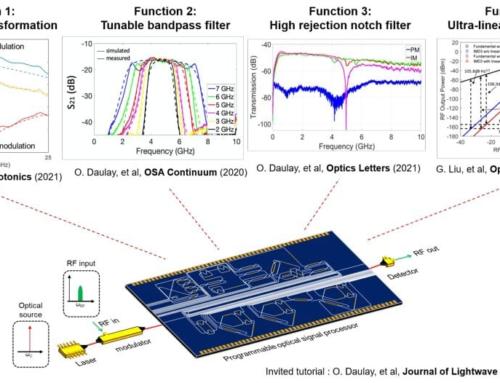Telkom launched a legal challenge against ICASA’s spectrum auction process at the end of last year, saying that if it goes ahead as planned the regulator will mess up South Africa’s telecommunications industry for 20 years.
Most recently, Telkom warned that mobile data prices in South Africa will remain high if the Independent Communications Authority of South Africa (ICASA) does not make changes to the spectrum auction.
Telkom’s two major complaints are as follows:
- Several important spectrum bands in the 700MHz and 800MHz regions are not commercially viable as they are still in use by broadcasters. Telkom wants assurances from the High Court that government will be forced to migrate broadcasters out of those bands, as it will have no incentive to do so once it has the money from the auction in its pocket.
- ICASA went ahead with its Invitation to Apply for the high-demand spectrum without first finishing its Mobile Broadband Service Market Inquiry. Telkom contends that this is unlawful and irrational. The root of this argument is that Telkom does not believe ICASA is doing enough to break the dominance of Vodacom and MTN in the market.
MyBroadband contacted Vodacom, MTN, Cell C, Rain, and Liquid Telecom for comment on Telkom’s court case against ICASA.
Vodacom, Rain, and Liquid all generally supported the spectrum auction process. Cell C said that ICASA needs to adopt “a more nuanced view” in its regulatory framework.
Cell C – More nuanced spectrum regulations needed
“Cell C will not be drawn into commenting on any competitor’s specific views but has its own comment on the process,” the company said when asked whether it shares Telkom’s concerns with the spectrum auction process.
It said that South Africa’s regulatory framework must consider a more complex market structure and a new set of business models to encourage more competition in the marketplace.
This is “to realise the promise of new spectrum availability and 5G technologies to achieve ubiquitous broadband access and bolster economic growth in South Africa,” Cell C said.
“With a more nuanced view of the complexities of the evolving telecom ecosystem — including infrastructure and spectrum sharing — innovation will be fostered and a fairer distribution of costs can occur along the value chain.”
Cell C said that it has submitted a response to ICASA’s invitation to apply for the high-demand spectrum set to be auctioned later this year.
Rain – ICASA has followed a sound process
Rain CEO Willem Roos said that their view is that ICASA has followed a sound process so far in defining the scope and requirements of the upcoming spectrum auction.
Roos declined to answer specific questions about Rain’s roaming agreement with Vodacom and its impact on the spectrum situation in South Africa, saying that the matter pertains to an ongoing legal case.
Vodacom – Further delays will hurt customers
Vodacom spokesperson Byron Kennedy said they remain supportive of ICASA’s spectrum auction proceeding as scheduled.
“Further delays in this process will likely have a negative impact on consumers,” Kennedy stated.
“We take note of the concerns raised by Telkom in your request for comment and are aware there are multiple legal processes currently underway in this regard. We will provide a more detailed update once we have a settled position on these proceedings.”
Liquid Telecom South Africa – We support ICASA’s plan
Liquid Telecom said it supports ICASA’s plan to auction the radio frequency spectrum used for 4G and 5G networks in South Africa.
“We have submitted our application and will be part of the auction as soon as the process commences,” Liquid stated.
MTN – No comment
MTN declined to comment.
However, MTN is taking ICASA to court over its definitions of Tier-1 and Tier-2 mobile operators, which form part of the spectrum auction structure.
MTN is less concerned over the 700MHz and 800MHz bands, and aggrieved that ICASA is going to allow smaller operators like Cell C and Telkom the first pick of certain lots of spectrum.
Called the Opt-In Scheme or Opt-In Round, MTN is particularly worried about having sufficient access to spectrum in the 3500MHz band.
MTN warned that ICASA’s plan may result in the likes of MTN and Vodacom choosing not to bid on any spectrum, as all the best spectrum lots might be taken during the Opt-In Round.
This could cost the South African fiscus dearly, warned MTN.
“In the event of all 3500MHz spectrum being taken up by [smaller] operators and sub-national operators during the Opt-In Round, there may well be little incentive to bid for any remaining spectrum, which means the fiscus will lose an opportunity to maximize revenue generation from the ITA auction process.”
MTN has since made good on its threat and filed an application in the Gauteng High Court to declare unlawful, and to review, correct, or set aside ICASA’s categorisation of network operators as “Tier 1” and “Tier 2” and its exclusion of Tier 1 operators from the Opt-In Round.



